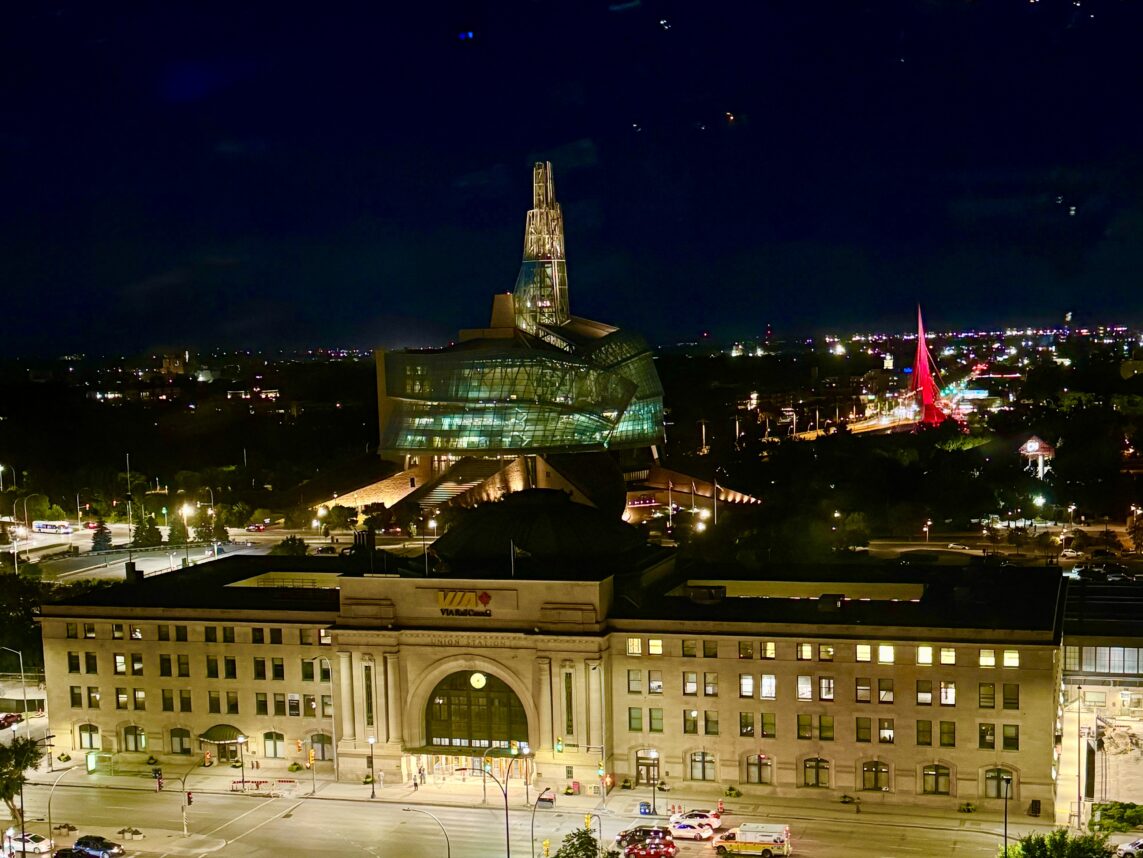Nov. 28 approaches, and our non-Jewish fellow citizens would be surprised to discover that, in some religious Jewish circles, Thanksgiving is controversial. The holiday troubles certain Orthodox Jews not because they are unpatriotic — considering how faithful a friend America has been to Israel lately, they are probably more patriotic than ever — but because some believe that the Torah forbids participating in any non-Jewish observance.
The argument revolves around whether Thanksgiving is a secular or Christian commemoration. If it’s the latter, then obviously that poses a difficulty.
What, however, if you could make a plausible case that it is, from a certain perspective, a Jewish holiday? Such a case can be made, which, if true, should be of interest not only to the Orthodox, but to all Jews.
In discussions of the Thanksgiving question, three principle Jewish legal opinions are cited: those of Rabbis Moshe Feinstein, Joseph B. Soloveitchik and Yitzchak Hutner. The first two permit celebrating the founding of the Pilgrim colony, finding the day in late November to be purely secular in nature. The third, Hutner, concludes that it is tainted by the fact that it’s held as a regular observance on the Christian calendar.
Critics of Thanksgiving observance cite another view, that of the Vilna Gaon (1720-1797). Not commenting on Thanksgiving per se, he said that all holidays, secular or otherwise, are problematic unless they can be shown to have Jewish origins.
Enter Michael Novak, a Catholic scholar whose book, “On Two Wings: Humble Faith and Common Sense at the American Founding” (Encounter Books, 2001) speaks indirectly to the Gaon’s concern.
What are we celebrating at Thanksgiving? Not just a turkey dinner at Plymouth Rock in 1620. Rather, the deeds of the Pilgrims are a sign to the children that America had been born — not legally, which would happen in 1776, but historically.
Novak insists that any “purely secular interpretation of the [American] founding runs aground on massive evidence.” So then, America is a Christian nation?
Not exactly. You see this in the founding documents, notably the Declaration of Independence, which use religious language but avoid any hint of Christology. God is beseeched in Jewish terms: Lawgiver, Creator, Judge, Providence, rather than savior, father, son, holy spirit.
Novak argues that the founders stayed clear of Christian references, in part because this kept them from getting tangled in denominational quarrels — their beloved stories of Abraham, Isaac and Jacob were “a religious lingua franca” — also, because Christianity was politically superfluous — “the Christian testament has little to say about the polity that is not already said in the Torah.” But the matter goes deeper.
Personally, the founders were Christians, but their actions were guided by what Novak calls “Jewish metaphysics” — philosophical assumptions drawn specifically from Hebrew Scripture, without which their separation from Britain would have been unsustainable. These were assumptions about intelligible purpose in history, purpose leading to progress, always in the context of human liberty. A liberty conceived not as license, but as a kind of trial, testing the heart of human beings.
Maybe it goes deeper still. From 1776 and 1620, let’s back up a few millennia. For the last three years, I’ve been working on a book about the patriarch Abraham, who makes me think of America.
In 1760 B.C.E., Jewish tradition has Abraham arriving at Haran at age 52, in what’s now southern Turkey. There he began the work of his lifetime: evangelizing and building a movement of nascent monotheism. Ultimately, according to Maimonides and other rabbinic sages, he gathered tens of thousands of souls under the wings of the Divine Presence. Genesis calls Abraham’s gentile community the “Masters of the Covenant of Abraham” (14:13). When the patriarch was 99 years old, everyone in his household was circumcised.
The mystery is what became of all these Abrahamites.
Perhaps, if we look, we may find Abraham’s household all around us. America is a country with a founding that reflects not Christian principles, but Abrahamitic, monotheistic principles. We are also a nation that circumcises its infant boys at a higher rate than any country, apart from Israel, in the world.
The fact that 60 percent of American men have the mark of Abraham’s covenant on their flesh is something we take for granted. When you consider that the surgery probably gives no net medical benefit, it’s very strange.
But America is very strange and very wonderful. The country where Jews have been more comfortable, freer to live Jewishly than anywhere in two millennia of dispersion, is a country we should be thankful for. If we have trouble thanking God for America on Nov. 28, because that day is thought to be a non-Jewish holiday, maybe we should think again — not about Jewish law, but about Thanksgiving, about America.
David Klinghoffer is the author
of “The Lord Will Gather Me In” (Free Press, 1998) and can be reached at davidklinghoffer@yahoo.com.
His forthcoming book, “The Discovery of the God: Abraham and the Birth of
Monotheism,” will be published by Doubleday in March.






















 More news and opinions than at a Shabbat dinner, right in your inbox.
More news and opinions than at a Shabbat dinner, right in your inbox.